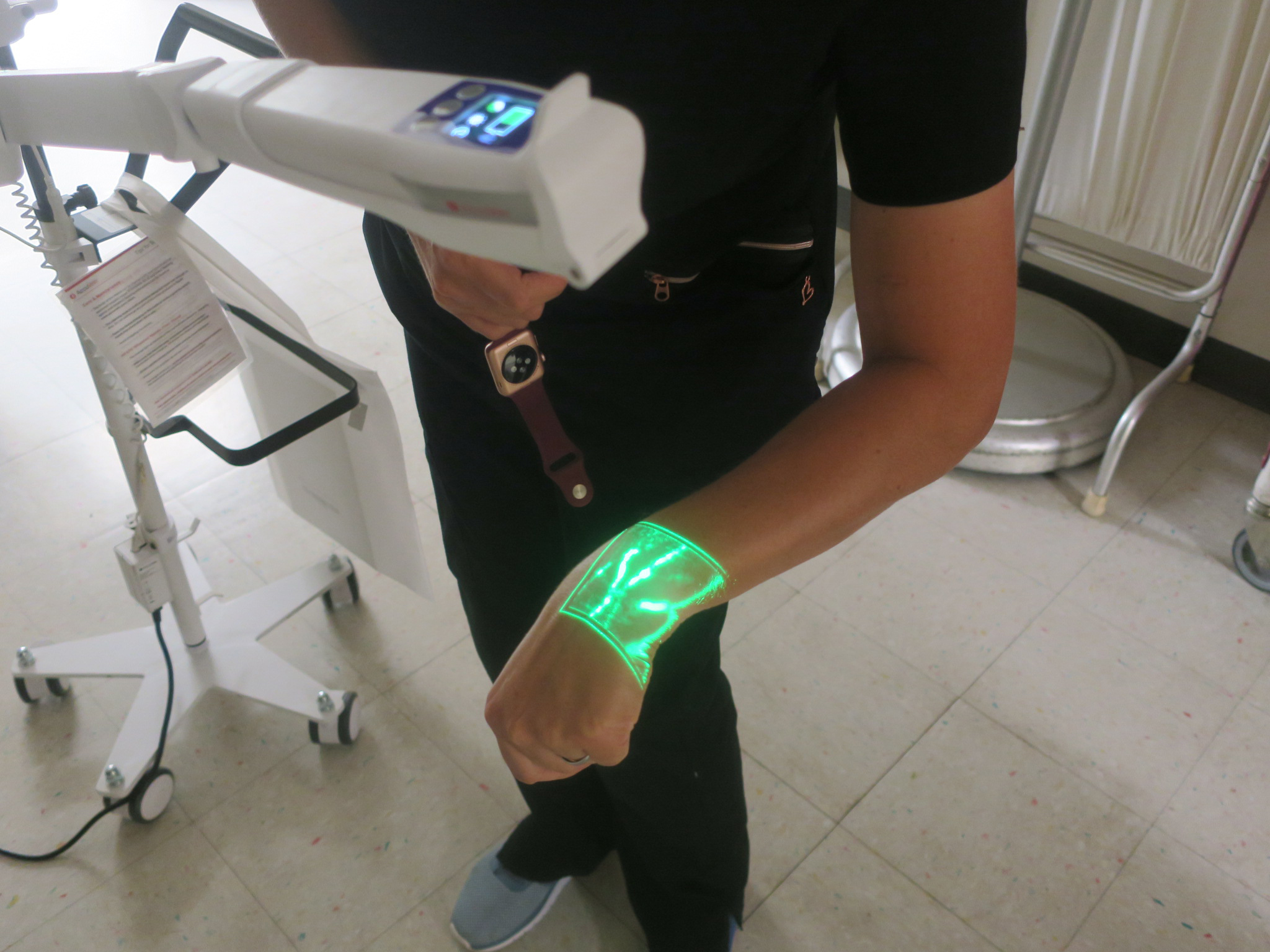Problem With Needles or Venipuncture? Help Is Here!
Posted on Friday, September 18th, 2020

Light Up: Megan Stephens, RN, illuminates
blood veins in her hand with the hospital’s
new vein-finding tool.
Do you have trouble having blood drawn for a lab test? Have you had to undergo multiple needle sticks in a vein? Your discomfort may be over.
Mercy Health/Love County Hospital has a new device, “AccuVein,” for casting light on blood veins, even those deep below the skin. That helps the nurse or “phleblotomist” quickly locate the target vein and evaluate its condition before making a first attempt at penetrating the vein wall with a needle for collection.
Departments throughout the hospital have started using AccuVein. The handheld wand can be mounted on a floor stand and rolled from laboratory to clinic, to ER, to hospital bedside as needed.
AccuVein casts near-infrared light about 5mm deep. Hemoglobin in the veins absorbs the light and forms a dark contrast to skin tissue. The machine’s sensor detects the reflected light and captures an image that is projected onto the surface of the skin. The visual gives the phlebotomist more information about veins than touch alone could provide.
Registered Nurses Marie Ross and Megan Stephens alternately placed their hands or arms beneath the AccuVein for a recent demonstration. Instantly a “map” of underlying veins came into view The detail was exceptional.
“The phebotomist has help finding the straightest, largest, most accessible vein to stick first,” Stephens said. “They are not having to work strictly by feel.”
Reducing the first needle-stick failure rate makes everyone happier. “We are lessening discomfort for the patient and the staff member,” Stephens said.
According to academic research, collecting a blood sample by penetrating a vein’s wall with a needle happens more than one billion times a year in laboratory testing around the world. Imagine that: A billion needle sticks.
A lab phlebotomist typically applies a tourniquet to the arm and slightly taps the site at the front of the elbow to stimulate the target vein and be able to locate it. The aim is to enter the vein and avoid the arteries and nerves.
Ross said the most likely candidates for AccuVein application at Mercy Health/Love County Hospital are patients who express discomfort with needles or prior difficulties with vein puncture. The device is also likely to be deployed for children and infants and patients with dark skin or thick skin or with dehydration. All of those cases make veins harder to analyze without the illumination AccuVein now provides.